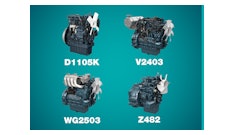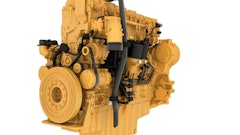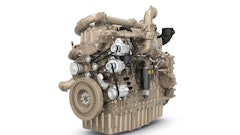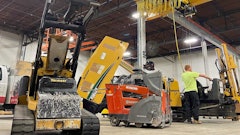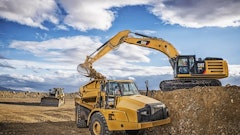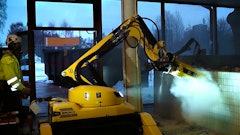
Since the United States inauguration day, Jan. 20, 2025, there has been a lot of uncertainty. The Trump administration has come into office with big ideas and ways that it would like to fix the problems it sees in the country. One of those problems is the climate and fossil fuels — President Trump has declared a national energy emergency. Unlike the Biden administration, President Trump expressed a need for more fossil fuels and more drilling.
“When he says, ‘drill, baby, drill’ that means we're likely to expedite permitting and some things that might open up more drilling on some of our available land resources,” explained Allen Schaeffer, executive director of the Engine Technology Forum.
After assuming office in January, the Trump administration has already taken more than 30 steps to reverse the headway made by the prior administrations. This process has been done through what is now known as the Climate Backtracker. The steps taken were completed to either diminish progress on current climate-supporting projects or to advance the production of fossil fuels.
To oppose pro-climate projects, the Executive Order behind the Federal Buy Clean program was rescinded. When the Executive Order was in place, government purchasing supported American manufacturers' investment in U.S. operations. Eliminating this guidance removed important federal support.
What Does This Mean for Construction?
Despite client and company demand for environmentally friendly buildings, the dwindling low-carbon incentives will present a significant challenge. In addition, there is no longer the same level of motivation for American manufacturers to invest in American facilities. This is not the only impact President Trump’s rulings will make on the industry.
Schaeffer said, “In terms of fracking and natural gas, that would be an area that has the ability to ramp up more quickly than some of the other sectors because of the installed infrastructure. So, we could see a boost in some of the production here.”
This anticipated uptick in oil production could make it easier for the industry to rely on domestic supply as opposed to importing oil. It can also provide the construction industry with more jobs as the President might be looking to drill more than the U.S. is currently equipped for — it is expected that pipelines will need to be built.
Much of the electric vehicle (EV) and zero-emissions vehicle (ZEV) movements are currently at a standstill and will likely stay that way for a while as President Trump continues to pull funding. He has paused the EV charging station buildout and pulled the funding for a list of climate crisis programs such as cleaning contaminated land and improving home energy efficiency. These changes can affect the existing EV and ZEV fleets in the industry.
While the extent of the effects is still yet unknown, it is noteworthy that the Trump administration is making sweeping changes that could have major impacts on the construction industry. These changes have the potential to improve certain areas and be detrimental to others. As more information continues to come out every day, it is important to remain current on all emerging news.












